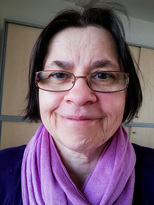|
Valeria Heuberger (ISA - Austria) On January 20th and 21st, 2016, two events dealing with Afghans, particularly with Hazara asylum seekers, took place at the Diplomatic Academy. The aim of the organizers, the Vienna Institute for International Dialogue and Cooperation together with the World Hazara Council, the Afghan youth association "Neuer Start in Österreich” and the Diplomatic Academy, was to bring together practitioners from different NGOS to share their experiences with Hazara asylum seekers in Austria and with the issue of refugees in general. Malek Sitez, Danish Institute for Human Rights, Kopenhagen, and Khadija Abbasi, Graduate Institute of International and Development Studies in Geneva, explained in introductory lectures about “Afghanistan – the lost paradise” international and regional political reasons for the instability in Afghanistan which results in an increase of Afghans coming to Europe. In the workshop “Afghanistan and the refugee crisis” a deeper look was taken into topics like integration, the role of the Hazara diaspora and the situation of Hazara refugees in Austria. Practitioners from organizations like Volkshilfe, Red Cross and the Austrian Integration Fund were present, many of them with migration background and/or personal experiences as a refugee like persons from Bosnia-Herzegovina. In different working groups general questions connected with migration/refugee movements/asylum were debated, in particular the term integration, it’s content and implications was intensively discussed. What can Austria expect from asylum seekers/refugees, and vice versa how about the expectations of Syrians, Afghans or Iraqis in Austria, especially of young people? One major demand of the NGO representatives was that German language courses should be offered as soon as possible for the newly arrived and not only for those who got already asylum granted. This measure would help to structure the day and make it easier to get into closer contact with Austrians. In this context efforts by Austrian volunteers were mentioned, e.g. taking Syrian families around in their neighborhoods and assisting them in many issues of daily life. Such measures contribute to prevent the feeling of isolation in their new environment and provide them with a kind of psychological and emotional support. Another demand dealt with the importance of offering and providing education. As many Hazara in Austria are young people access to education is vital for them which means also more transcultural training for teachers. An example for the difficulty to get access to the first steps into professional life was mentioned by one NGO representative who talked about the problem to find apprenticeship training for young Hazara. Key words: Afghanistan, Hazara in Austria, integration, support by Austrian institutions & society  Valeria Heuberger is a researcher at the Institute for Social Anthropology at the Austrian Academy of Sciences and member of ROR-N. She has a Ph.D. in European ethnology, history, in particular the history of East and South East Europe, and art history from the University of Vienna. Her main research interests are: Muslim communities in Europe, migration processes in Central Europe, history of Bosnia-Herzegovina, ethnic & religious communities in Austria.
0 Comments
Leave a Reply. |
Archives
June 2022
|
No part of this publication may be reproduced, stored in a retrieval system or transmitted in any form or by any means, electronic, mechanical, photocopying, recording or otherwise, without prior permission of the copyright holder, except for the inclusion of quotations properly cited.
Published in Vienna, Austria by ROR-n.
